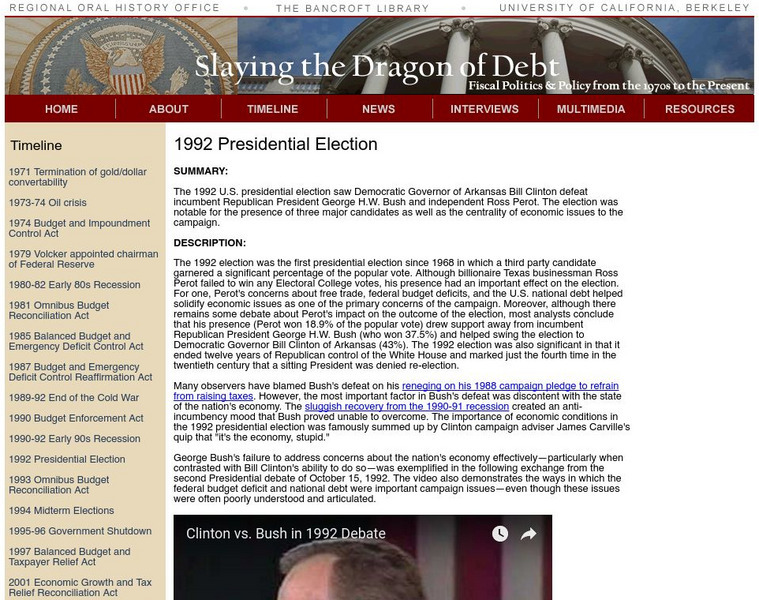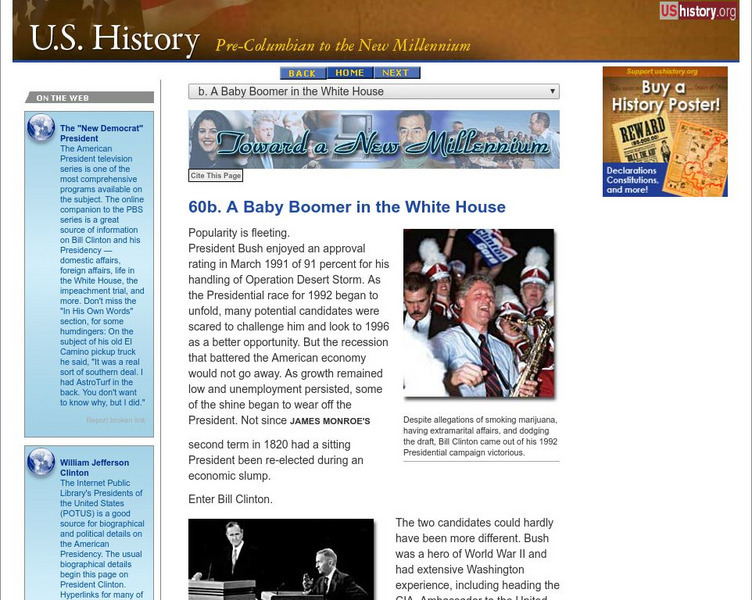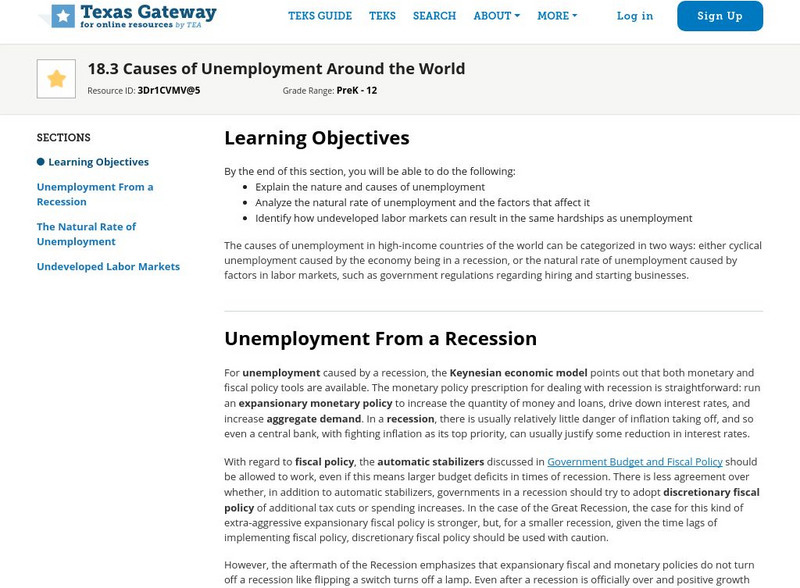Federal Reserve Bank
Federal Reserve Bank of Minneapolis: Achieving Economic Stability: Lessons From the Crash of 1929
This page provides access to the text of the speech "Achieving Economic Stability: Lessons From the Crash of 1929" by Gary H. Stern, President, Federal Reserve Bank of Minneapolis. It compares the Crash of 1929 to the Crash of 1987.
Council of Foreign Relations
Terrorism Questions and Answers: Economics
Part of an extensive website from the Council on Foreign Relations devoted to understanding all aspects of terrorism and its implications for the United States, this section focuses on the economic impact of the September 11, 2001...
Texas Education Agency
Texas Gateway: Chapter 11: Aggregate Demand in Keynesian Analysis
By the end of this section, you will be able to do the following: Evaluate the Keynesian view of recessions through an understanding of sticky wages and prices and the importance of aggregate demand; explain the coordination argument,...
Texas Education Agency
Texas Gateway: Chapter 12: Neoclassical Perspective: Review Questions
This section provides 12 review study questions covering the content of Chapter 12: Neoclassical Perspective from Texas Gateway AP Macroeconomics online text.
Texas Education Agency
Texas Gateway: Chapter 12: Balancing Keynesian and Neoclassical Models
By the end of this section, you will be able to do the following: Evaluate how neoclassical economists and Keynesian economists react to recessions and Analyze the interrelationship between the neoclassical and Keynesian economic models.
Texas Education Agency
Texas Gateway: Using Fiscal Policy to Fight Recession, Unemployment, & Inflation
A learning module that uses charts and information to explain how expansionary and contractionary fiscal policies shift aggregate demand and influence the economy.
Digital History
Digital History: Reaganomics
This on "Reaganomics," President Reagan's economic policy during his two presidential terms in the 1980s, discusses his laissez-faire approach and tax-cutting, which contributed to the economic recovery of that period.
US Department of Labor
Bureau of Labor Statistics: 1990 91 Recession: How Bad Was the Labor Market? [Pdf]
"The 1990-91 recession: how bad was the labor market?" by Jennifer M. Gardner, from Monthly Labor Review Online, June 1994, Vol. 117, No. 6.
US Department of Labor
Bureau of Labor Statistics: Monthly Labor Review: Job Growth in the 1990s: A Retrospect [Pdf]
An article excerpt that documents how job growth in the 1990s helped to turn around the recession.
University of California
Regional Oral History Office: 1992 Presidential Election
A brief overview of the presidential election of 1992 which included a strong third party candidate, H. Ross Perot. See what the issues were and find out why an incumbent was defeated. Included is a video clip of one of the presidential...
Federal Reserve Bank
Federal Reserve Bank of Minneapolis: There's No Such Thing as a Good Recession
This article from the Federal Reserve Bank of Minneapolis discusses how a recession effects the economy. It goes into great detail on why a recession can never be a good thing. (Published Sept. 1, 1989)
Other
Federal Reserve Bank of Kansas City: The Federal Reserve System
The site maintained by the Federal Reserve District explains monetary policy, and supervisory and regulatory role of the U.S. Federal Reserve System.
Other
Ncsl: State Economic Stimulus Plans
This 2009 chart shows sixteen U.S. state-level stimulus plans in response to the economic crisis.
Federal Reserve Bank
Ask Dr. Econ: How Many Recessions Have Occurred in the u.s. Economy?
Resource takes a look at the period from the 1940s to the end of 2007 and explores in depth the topic of recessions and how many have actually occurred.
Independence Hall Association
U.s. History: A Baby Boomer in the White House
Read about the presidential election of 1992, which included a third-party candidate, focused on the economy, and unseated an incumbent.
Council for Economic Education
Econ Ed Link: The Effects of the Recession
The students learn how a recession affects our economy, and how it might affect them personally.They examine the role the federal government has played in dealing with the current recession. They analyze their thoughts about what role...
Council for Economic Education
Econedlink: Business Cycles
This video teaches the concept of Business Cycles. The pattern in which economies have periods of recession and then also periods of economic expansion or recovery is known as the business cycle.
Texas Education Agency
Texas Gateway: Chapter 12: Neoclassical Perspective: Key Concepts and Summary
This section summarizes the key concepts presented in Chapter 12: Neoclassical Perspective from the Texas Gateway AP Macroeconomics online text.
Texas Education Agency
Texas Gateway: Ch. 18: Causes of Unemployment Around the World
By the end of this section, you will be able to do the following: Explain the nature and causes of unemployment, Analyze the natural rate of unemployment and the factors that affect it, and Identify how undeveloped labor markets can...
Council for Economic Education
Econ Ed Link: Jokes, Quotations, and Cartoons in Economics
Students will apply their knowledge of economics to the analysis and interpretation of jokes, quotations, and cartoons in economics. Students will watch a Paul Solman video of an interview of Yoram Bauman, the Stand up Economist....
Practical Money Skills
Practical Money Skills: Recession
Learn about recessions, periods of economic slowdown often marked by high rates of unemployment, plunging stock prices, lower corporate profitability, and consumer anxiety.
Khan Academy
Khan Academy: Tracking Real Gdp Over Time
Read about fluctuations in Gross National Product (GDP) from year to year.
Digital Public Library of America
Dpla: The Panic of 1837
This set uses primary sources to explore the financial practices that contributed to the Panic of 1837 and the impact of the crisis on America's politics, economy, and people.




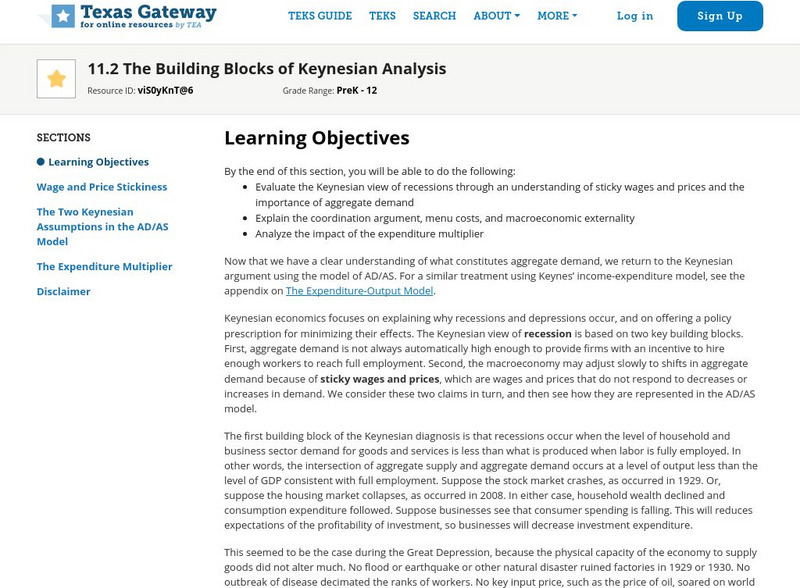
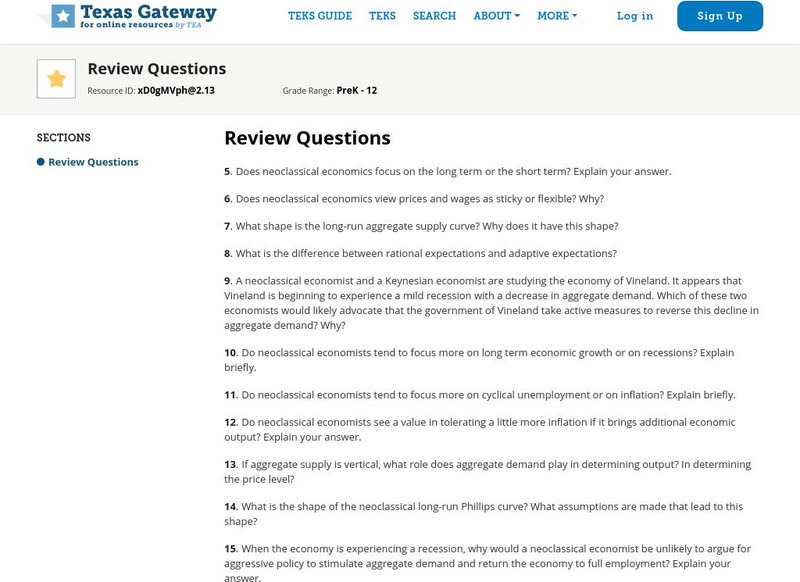
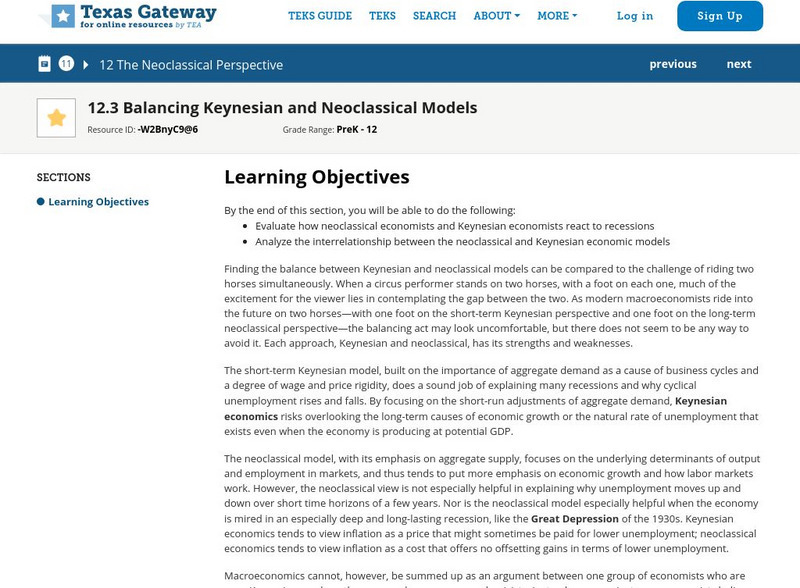


![Bureau of Labor Statistics: 1990 91 Recession: How Bad Was the Labor Market? [Pdf] Handout Bureau of Labor Statistics: 1990 91 Recession: How Bad Was the Labor Market? [Pdf] Handout](https://d15y2dacu3jp90.cloudfront.net/images/attachment_defaults/resource/large/FPO-knovation.png)
